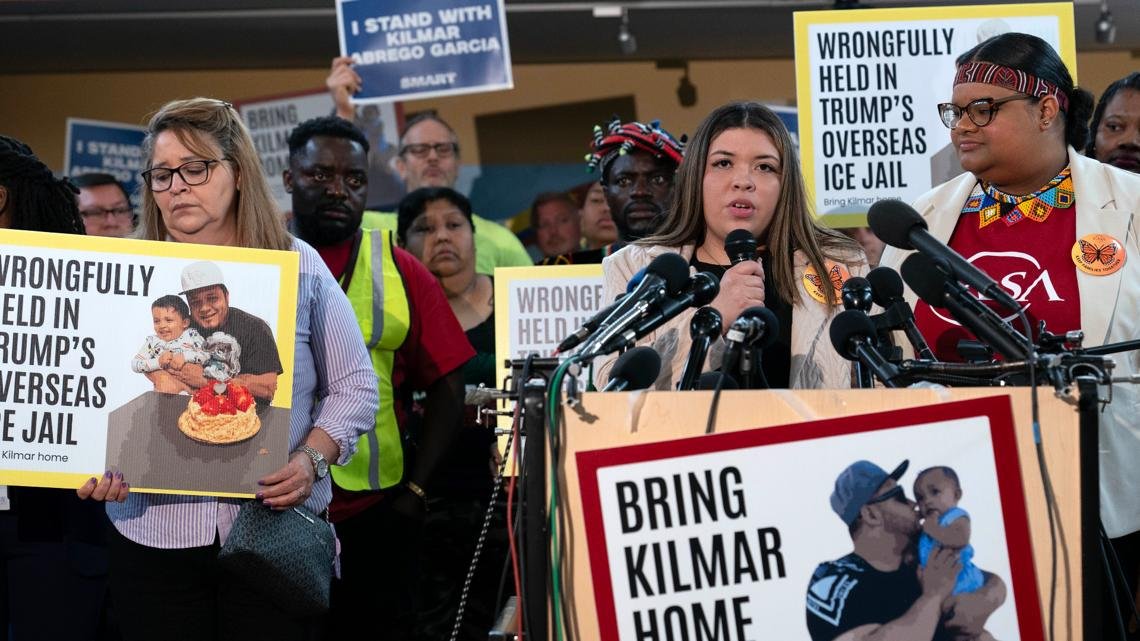cct-tracking
DOJ Takes Action Against Lawyer Amid Maryland Man’s Mistaken Deportation Controversy

Abrego Garcia’s mistaken deportation has sparked significant outrage and raised critical questions about the treatment of noncitizens with legal permission to remain in the U.S.
On Saturday, the U.S. Justice Department informed an appeals court that a lower court judge lacked the authority to mandate the Trump administration facilitate the return of Kilmar Abrego Garcia, a Maryland man mistakenly deported to an infamous prison in El Salvador. The department also announced the suspension of a lawyer who admitted during a court session that the deportation was erroneous.
The Justice Department requested that the 4th U.S. Circuit Court of Appeals halt a ruling by U.S. District Judge Paula Xinis. Xinis had ordered the administration to ensure Garcia’s return to the U.S. by the following Monday.
In filings, government attorneys argued, “A judicial order that forces the Executive to engage with a foreign power in a certain way… is constitutionally intolerable.” The appeals court requested a response from Garcia’s legal team by Sunday afternoon.
Garcia, a 29-year-old Salvadoran, was unlawfully deported despite a 2019 immigration court ruling that granted him protection from being sent back to El Salvador, where he faced threats from gangs. This misstep by the government, labeled as an “administrative error” by the White House, has heightened concerns over the expulsion of individuals granted legal status.
During a court session in Greenbelt, Maryland, Justice Department attorney Erez Reuveni acknowledged that Garcia should not have been removed from the country. Reuveni was unable to provide satisfactory answers regarding the basis of Garcia’s arrest.
Reuveni’s suspension was confirmed by a Justice Department spokesperson after the hearing. Attorney General Pam Bondi stated that all attorneys must advocate for the United States’ interests, asserting consequences for those who fail to do so.
Judge Xinis ruled that there was no legal justification for Garcia’s detainment or his removal to El Salvador, where he is currently incarcerated amid claims of human rights violations. Garcia’s attorney, Simon Sandoval-Moshenberg, criticized the government for a lack of action to rectify the situation despite its acknowledgment of the errors made.
The White House has portrayed Garcia as affiliated with the MS-13 gang, a claim that his attorneys have disputed, pointing out the absence of evidence supporting such allegations. According to his attorney, Garcia held a work permit from the Department of Homeland Security, was employed as a sheet metal apprentice, and was working towards his journeyman license. His spouse is a U.S. citizen.
Fleeing El Salvador around 2011 due to gang-related threats against his family, Garcia had received asylum protection in 2019. The Justice Department contends it has no jurisdiction over Garcia’s case or the authority to negotiate his return, comparing it to a court command against international conflicts. “This is no way to run a government,” the brief concluded.

















